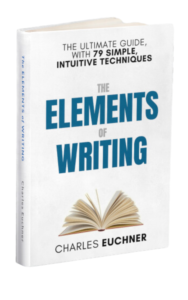Simple constructions can create a dynamic, even dazzling style. Details make all the difference. When you show readers things that they would not notice on their own, and then arrange them in a pleasing way, you’ve got style.
 So what kinds of details make the biggest impact on readers? Tom Wolfe answers this question in The New Journalism, an anthology he edited a generation ago. In short, it’s all about status. Wolfe defines status details as:
So what kinds of details make the biggest impact on readers? Tom Wolfe answers this question in The New Journalism, an anthology he edited a generation ago. In short, it’s all about status. Wolfe defines status details as:
the recording of everyday gestures, habits, manners, customs, styles of furniture, clothing, decoration, styles of traveling, eating, keeping house, modes of behavior toward children, servants, superiors, inferiors, peers, plus the various looks, glances, poses, styles of walking and other symbolic details that might exist within a scene.
Symbolic of what?
Symbolic, generally, of people’s status life, using that term in the broad sense of the entire pattern and behavior and possessions through which people express their position in the world or what they think it is or what they hope it to be. The recording of such details is not mere embroidery in prose. It lies as close to the center of the power of realism as any other device in literature.”
So when you write, show the reader all the status details that they never noticed but, once they see them, they say, “Ahhhhhhh.” Find the 101 ways that people vie for status, consciously, but would never admit in 101 years.
Make those details fresh. How? Make the familiar unfamiliar . . . and the unfamiliar familiar. Bring the periphery to the center and the center to the periphery. Give your characters just enough rope to hang themselves with their self-indulgent ways . . . and just enough hope to help them find a way to make what they have meaningful. When someone shows off, look for the tic of insecurity; when someone shrinks, look for the surge of strength underneath the shell.
And have fun.


